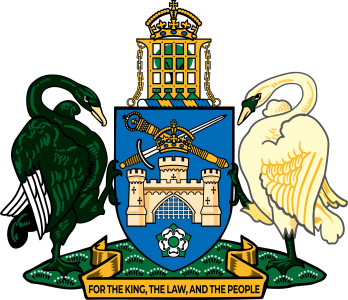Committed To Becoming More Age-Friendly
Canberra Australia
Canberra – an Age Friendly city now and into the future
In 1950, Canberra – Australia’s capital city – was home to fewer than 20,000 people.
According to the 2021 census data, almost 14% of the ACT’s population is aged 65 and over. As the ACT’s population continues to grow significantly, population projections show a moderate ageing of the ACT population into the future.
There are approximately 62,200 Canberrans aged 65 years and over and this number will continue to grow. As it does, the ACT Government will continue to ensure our city’s services, healthcare, culture, and infrastructure meets the needs of older people.
Older Canberrans have the highest rates of volunteering and caring in Australia, and they bring significant resource to the social, community and economic life of our city. We value and recognise the important role of older Canberrans.
In 2011, Canberra was accepted as a member of the World Health Organisation’s Global Network of Age-Friendly cities. This membership recognises that the ACT Government is already working on age friendly approaches in transport, infrastructure, health, justice, and human rights.
In May 2020, the ACT Government released the Age-Friendly City Plan 2020-2024 – a whole of government strategy, facilitating collaboration across ACT Directorates to progress a range of targeted actions to support older Canberrans. This includes enhancing social inclusion, access to services, public transport, age-friendly urban planning, and addressing age discrimination and elder abuse.
To ensure the community is kept informed of work under the Age-Friendly City Plan, an annual statement of progress is published against its actions. This can be accessed under the Monitoring and Evaluation section of the website.
Below is a list of key achievements under the Age-Friendly City Plan, mapped against the eight interconnected domains that can help to identify and address barriers to the wellbeing and participation of older people.
Outdoor spaces and buildings
- Using the Seniors Grant Program to support activities which occur in local outdoor community spaces.
Transportation
- Promoting the benefits of the ACT Seniors Card, particularly public transport concessions to encourage increased uptake.
- Improving the volunteer administration system at Transport Canberra and City Services to better support volunteers, including older volunteers.
Housing
- Targeting promotion of the Home Safety Program for older Canberrans.
Civic participation and employment
- Promoting the purpose and operation of the whole of government flexible work policy, including employment opportunities across the whole of government for older Canberrans.
Social participation
- Celebrating Canberra’s rich language and cultural diversity through intergenerational Bilingual Story Times series.
Respect and social inclusion
- Introducing legislation that makes elder abuse a criminal offence.
- Running a broad inclusion and diversity social media awareness campaign including a focus on age discrimination.
Communication and information
- Promoting the achievements of older Canberrans through current award programs such as Canberra Citizen of the Year, Canberra Gold Awards and ACT Senior Australian of the Year and Australian Honours recipients.
Community support and health services
- Implementing a strategy to support the mental health and wellbeing of older Canberrans.
- Piloting designated dementia-friendly spaces, including hosting dementia-friendly events within ACT Government shopfronts and at major events across Canberra.
The ACT Wellbeing Framework, published in March 2020, helps us to understand and improve Canberrans’ wellbeing and quality of life. The Framework measures high-level outcomes in 12 domains, reflecting key areas of importance to Canberrans. It will help us to evaluate policy and programs and guide future policy design and decision making.
The Ministerial Advisory Council on Ageing (MACA) provides advice to the ACT Government on policies and initiatives which support better outcomes for older Canberrans. The 2021-24 MACA developed a workplan to guide outcomes over their term, with two key priorities – supporting delivery of relevant actions under the Age-Friendly City Plan; and progressing initiatives which reflect the broader priorities of the MACA as they relate to the Council’s priority focus areas – the arts, community hubs, dementia-friendly design and housing.
Building on the work of the Age Friendly City Plan, the 2023-24 ACT Budget also saw the ACT Government provide funding for initiatives focused on the wellbeing of older Canberrans, This included pilot programs for a seniors’ art festival and the Gold Soul Program (intergenerational live-in and social placement program) and support for dementia-friendly events.


